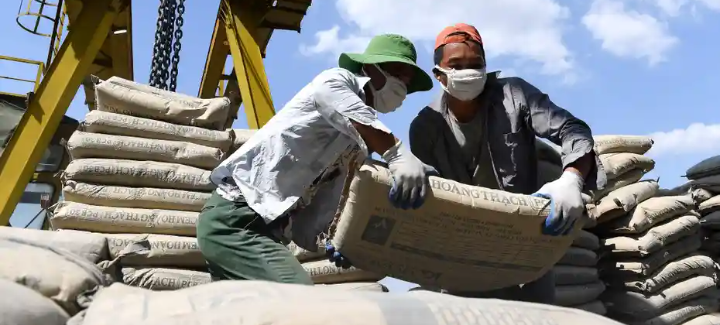
Cement Prices To Shoot Following Policy Issues.
Cement prices have risen at the fastest rate on record. A friend told me that he purchased a bag at Sh 580 in Kakamega two weeks ago. The same thing is now selling at Sh 1,100 in the same town.
Compounding the situation are crippling shortages. As you drive through Athi River today, you will notice that the queues of trucks waiting in front of factories to load the precious commodity- are becoming longer and longer.
What explains this worrisome trend? A sudden and unanticipated shortage of clinker. Two factors explain this. First, international clinker markets are still reeling from the effects of disruptions to clinker supply chains that were precipitated by the Covid-19 epidemic and that caused an astronomical upsurge in freight costs.
Compounding the situation is the fact that the major local suppliers of this key input have recently been hit by mechanical problems rendering their kilns unable to supply the market sufficiently with locally produced stuff.
We have learnt a poignant lesson about the risk of letting our local cement manufacturers to depend on the precarious benevolence of a few local big local suppliers of clinker. These are tremors and distortions arising from the concentration of capacity in the manufacturing of a key input in the hands of few players.
The policy implications are clear. Policy must be made to quickly start guiding the local cement manufacturing sector into transitioning from a sector where most of the players are grinding-only plants into a scenario where a far greater majority are vertically integrated outfits with the capacity to manufacture both clinker and the final product.
Fortunately, all major manufacturers are currently in different stages of rolling out capacity in manufacturing this key input. It seems to me that going forward success will largely depend on fiscal incentives and trade policy stances the government will adopt.
What is going to be even more critical in the medium term is the position we adopt during the ongoing negotiations on a comprehensive review of the common external tariff for the East African Customs Union. The position we take in these negotiations will carry major implications to growth, the pace of new investment, and creation of new jobs in the local cement manufacturing industry.
I believe that the capacity of our cement industry to make our economy surge to new heights cannot be gainsaid. But if you asked me to name the biggest contributory factor to our failure to fulfil the potential of the industry, I will say maddening instability of fiscal laws, characterised by arbitrary changes in duties and taxes and constant mixed signals from State bureaucrats and ministers.
Here is a good example. Last week, the Principal Secretary (PS) for trade, Mr Johnson Weru, was quoted in the press saying that Kenya would be increasing duty on imported clinker to rein in what he described as unscrupulous cement manufacturers whom he claimed — without substantiating — were involved in trade malpractices.
The PS added,again without substantiation, that errant cement manufacturers have been abusing the low tax regime of 10 percent in the region and that the government wants to discipline them by increasing on duty of imported clinker
Is the PS aware that his utterances in that press interview contradict the ruling and opinion of the Competition Authority of Kenya — the ultimate authority on competition matters in the land?
Has Mr Weru read through the findings of the independent verification committee that investigated the very subject and concluded that high duties on clinker would entrench monopolistic pricing and risky dependence of the industry on a few players for this key input?
If you increase duty on clinker prices today, you will have administered euthanasia to the far majority of cement makers and allowed a tiny elite to make billions from zero- import pricing. Period.
